
The European Commission (EC) announced on Tuesday the allocation of €83 million in “initial humanitarian aid” to Ukraine and Moldova for 2024.
“To help the most vulnerable people (…) in 2024, the EU will provide an initial €75 million in humanitarian aid to Ukraine and €8 million to Moldova. And we will continue to closely monitor the changing needs on the ground to respond to the most urgent humanitarian challenges,” said Janez Lenarčič, EC Member for Crisis Management.
The European Commission’s communiqué explains that €75 million for Ukraine has been allocated for humanitarian projects “to provide emergency assistance, including access to basic needs such as shelter, protection services, drinking water, education and healthcare.”
Humanitarian projects for Moldova worth €8 million provide “targeted assistance to the most vulnerable populations, including humanitarian cash assistance to meet basic needs, protection and health care.”
The European Commission said that with this new funding, it has allocated a total of €926 million for humanitarian assistance programs for the civilian population of Ukraine after February 2022. Of these funds, €860 million is earmarked for humanitarian programs inside Ukraine and €66 million for support to Ukrainian refugees in neighboring Moldova.
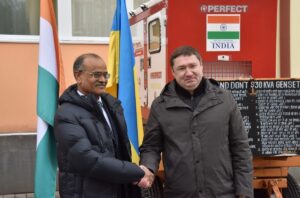
Ambassador Shri Harsh Kumar Jain handed over the 15th consignment of humanitarian aid from the Government and people of India, comprising ten 30 KVA generators, to Ms. Nataliya Lipska, Director of the “Kryla Nadiyi” Charitable Fund, in the presence of H.E. Mr. Maksym Kozytskyy, Head of the Lviv Regional State Administration, at the Lviv State Lyceum, on 19 January 2024.
The aid was provided at the request of Lviv Regional State Administration. Mr. Kozytskyy thanked the Government and people of India, on behalf of the people of the region, for responding to his request. He informed that the generators will be provided to eight educational institutions in the region to support their educational process.
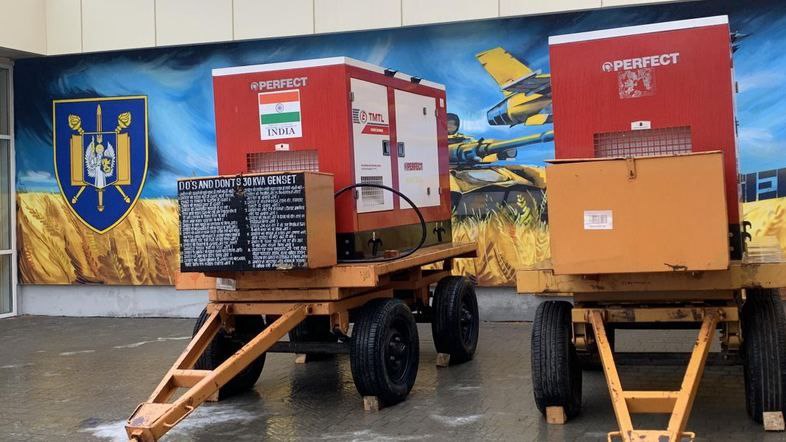
Speaking on the occasion, Ambassador stated that India accords high priority to providing humanitarian assistance to the people of Ukraine, during this difficult time, keeping in line with the human centric approach of the Government of India, a central tenet of India’s national beliefs and values, which perceive the whole world as one family.
He reiterated Government of India’s commitment to continue to provide humanitarian support to the people of Ukraine as conveyed by India’s Prime Minister H.E. Shri Narendra Modi to President of Ukraine H.E. Mr. Volodymyr Zelenskyy during their meeting in Hiroshima in May 2023.
Government of India has previously provided 14 consignments of humanitarian aid to Ukraine and its neighboring countries as well as financial assistance to Kyiv Gymnasium of Oriental Language No. 1 for its project of reconstruction, remodeling and refurbishment of some of the rooms and Ukraine-India Association for its program aimed at restoration of psychological health of youth and children.

More than 14.6 million people in Ukraine are in need of humanitarian assistance, and Ukrainian refugees who fled the country due to the war also need help, the UN website reported on January 9.
“This year, according to UN estimates, more than 14.6 million people in Ukraine – 40 percent of the country’s population – will need humanitarian assistance. The UN also reminds that 6.3 million Ukrainians who fled abroad need help,” the publication says.
It is noted that next Monday, the UN Office for the Coordination of Humanitarian Affairs (OCHA), together with the UN Refugee Agency (UNHCR), will present a 2024 response plan for Ukraine, as well as for Ukrainian refugees and host countries in the region in Geneva.
UNHCR expresses concern that many Ukrainian refugees remain without the necessary support.
The UN welcomes the European Union’s decision to extend temporary protection measures for Ukrainian refugees until March 2025, while emphasizing that efforts to integrate IDPs into the national systems of host countries should be a priority.
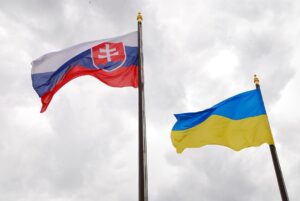
Slovakia will donate humanitarian aid to Ukraine totaling €203,492, which will include power generators and heaters, the Slovak Ministry of the Interior reports.
“Based on Ukraine’s request for humanitarian aid, as well as the European Commission’s call for member states to show solidarity with the civilian population affected by the military conflict, the Slovak Republic will provide humanitarian aid to Ukraine totaling €203,492,” the Ministry of the Interior said in a statement published on its website.
The cargo of humanitarian aid will weigh 21 tons and will include power generators, heaters, clothing and first aid kits from the stocks of the Headquarters of the Ecumenical Pastoral Service in the Armed Forces of Slovakia and the Armed Forces of the Slovak Republic, as well as food, bottled water and clothing from the stocks of the Slovak Ministry of Internal Affairs.
It is noted that the Ministry of Health of Ukraine, the Ministry of Internal Affairs of Ukraine, the regional enterprise Donetskteplocomunenergo, and the city council of Pokrovsk, Donetsk region, will receive the aid.
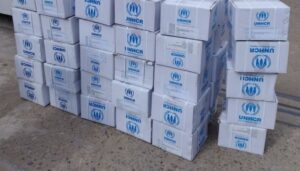
The United Nations (UN) is requesting $435 million in humanitarian aid for Ukraine to help it get through the winter, the Ministry of Reintegration of the Temporarily Occupied Territories of Ukraine reports, citing the UN Office.
“In connection with the adjustment of the Humanitarian Response Plan, the UN asks partners to allocate $435 million in assistance to Ukraine. This is stated on the website of the United Nations Office for the Coordination of Humanitarian Affairs (OCHA Ukraine),” the Ministry of Reintegration said in a statement on its Telegram channel on Tuesday.
The UN believes that these funds will make it possible to provide humanitarian assistance to more than 1.7 million people throughout Ukraine until March 2024.
As noted, the relevant Humanitarian Response Plan is being implemented in support of the efforts of the Government of Ukraine, as well as national, regional and local authorities. In the future, it will be supplemented by a regular program designed to meet the needs of more than 11 million Ukrainians.
The 2023-2024 response will focus on communities where active hostilities have taken place or are taking place, namely in Donetsk, Dnipro, Kharkiv, Kherson, Luhansk, Mykolaiv, Sumy and Zaporizhzhia oblasts.
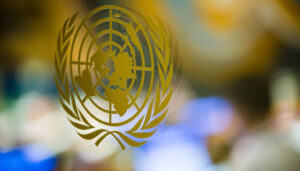
About $435 million is needed to help civilians across Ukraine by March 2024, according to the website of the UN Office for the Coordination of Humanitarian Affairs.
“The United Nations and partners are calling for about $435 million to be allocated for winter assistance. US dollars to provide winter assistance to more than 1.7 million people across Ukraine by March 2024,” the statement emphasizes.
It is noted that this year alone, the UN and partners have delivered 14 convoys to the frontline areas of Zaporizhzhia region, providing the necessary assistance to more than 30 thousand people living near the southern front. Since the beginning of the year, 96 humanitarian convoys have been delivered to the frontline areas.
In particular, as reported on November 3, an interagency humanitarian convoy delivered vital supplies for 1,600 people who remain in the frontline town of Orikhiv, Zaporizhzhia Oblast. The aid included medicines, household items, hygiene kits, blankets, mattresses, solar lamps and sleeping bags.